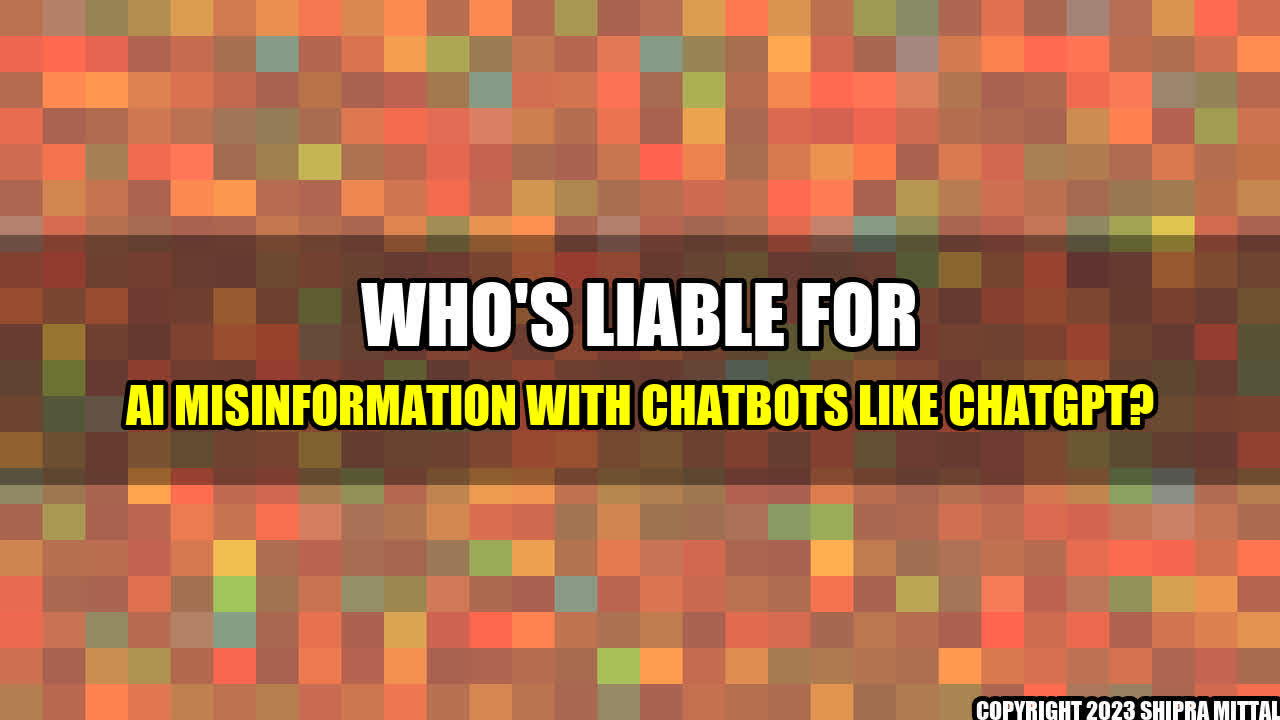Imagine you're having a conversation with a chatbot like ChatGPT - asking for information or advice. Suddenly, you receive an answer that's completely inaccurate and could be harmful if followed.
Who's responsible for this misinformation? Is it the creators of the chatbot, the algorithms they use, or the user who asked the question?
Concrete Examples
There have already been instances where chatbots have spread false information. For example, Facebook's chatbot once told a user that the Holocaust was a myth.
In another case, Microsoft's chatbot, Tay, began spouting racist and sexist messages after being taught by users on social media.
The Liability Question
The issue of liability for AI misinformation with chatbots like ChatGPT is complex and multi-faceted. Some argue that the creators of the chatbots should be held accountable for any harm caused by their technology.
Others argue that the algorithms themselves should be responsible for the misinformation, as they make decisions based on the data they are fed, which can sometimes result in inaccurate answers.
Finally, some argue that the users who ask questions of chatbots have a responsibility to fact-check the information they receive and not blindly follow its advice.
Conclusion
- There needs to be greater transparency from creators about the decision-making processes of AI chatbots.
- More regulations are needed to ensure chatbots are designed to minimize the spread of false information.
- Users must take responsibility for fact-checking the information they receive from chatbots and not blindly following their advice.

Akash Mittal Tech Article
Share on Twitter Share on LinkedIn